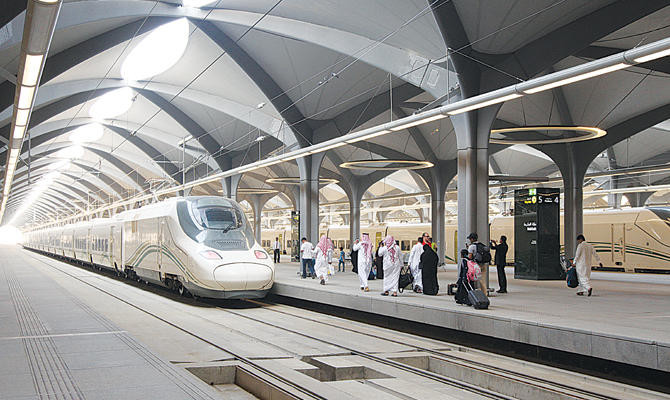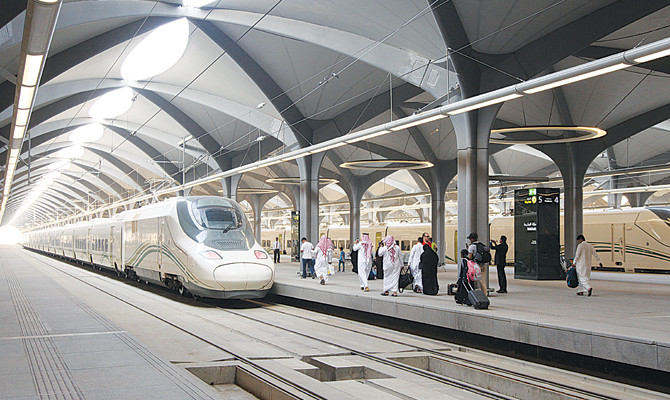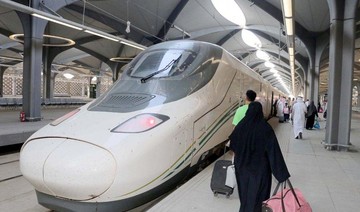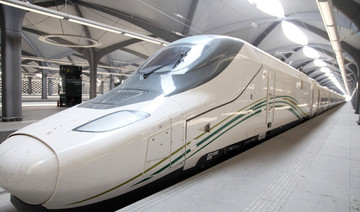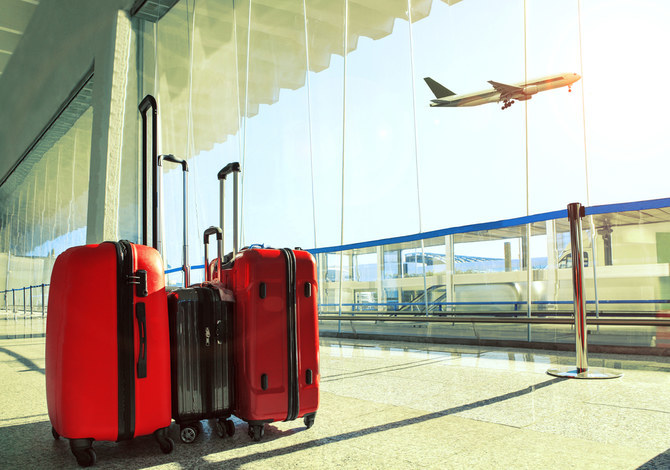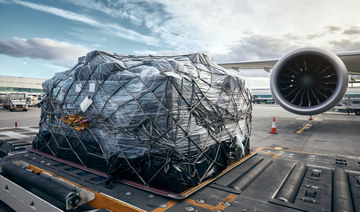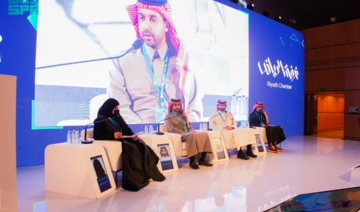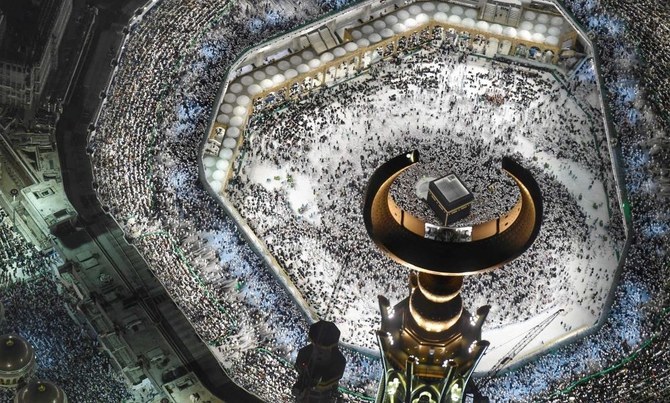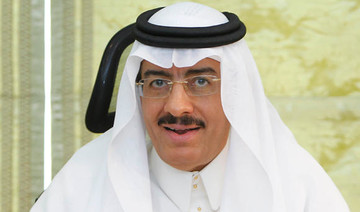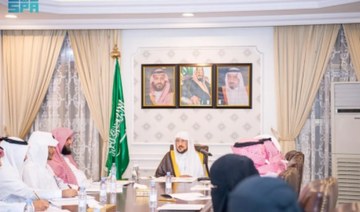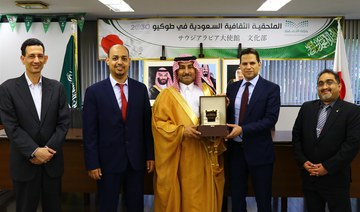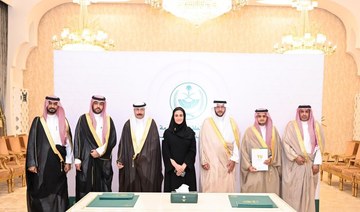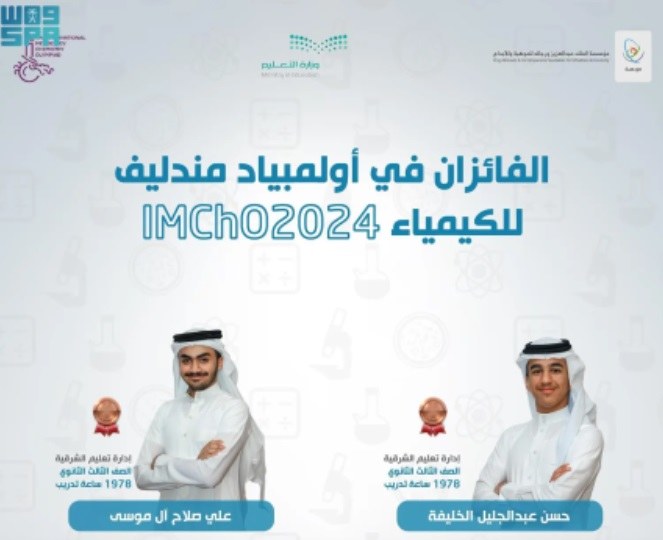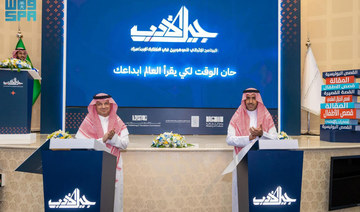DUBAI: Saudi Arabia is on track to develop its rail networks as part of a GCC-wide push to ramp up regional transportation, with the high-speed Haramain railway now operating at near-full capacity, Riyadh’s Metro almost complete and another 800km of track, along with sleeping coaches, added to the Kingdom’s North-South railway.
Such projects are helping the country move toward realizing the goals of Vision 2030, with transportation a key driver of the economic renaissance that will take place as the Kingdom’s economy moves away from its reliance on oil.
Saudi Arabia’s first rail line, between Riyadh and Dammam, opened in 1951. “It was inaugurated by the founder King Abdul Aziz and the late King Saud, who put the nail for the last mile in the track from Dammam to Riyadh,” said Dr. Rumaih Al-Rumaih, president of the Public Transport Authority in Saudi Arabia. He spoke at the Middle East Rail conference, part of the Middle East Smart Mobility event in Dubai last week, where he provided an update of the Kingdom’s ambitious transportation plans.
“The current line transported 1.8 million passengers in 2018 and we are improving services and increasing speeds, with our target this year to increase it from 160km to 180km. We also transported 700,000 containers from Dammam Port to Riyadh’s Dry Port.”
The Haramain High Speed Railway is another project launched last year by King Salman — a high-tech, state-of-the-art 450km-line connecting five stations between Madinah and Makkah at 300km/hour. 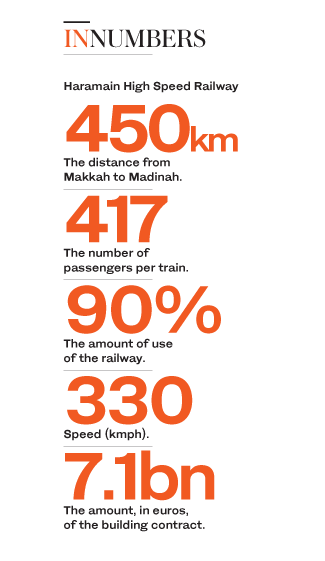
“It is now being utilized by Muslims from all over the world, and since we inaugurated it, we have had above 90 percent utilization,” said Dr. Al-Rumaih. “It is almost full on every trip we add, which is very pleasant and shows our planning was in the right place.”
Once all stations open, he said that the line would represent the backbone of all transportation among the two holy cities, employing Saudi men and women to operate it. “The train driver was Saudi, and he was trained there,” he added.
Saudi’s North-South Line, which opened in 2017, added another 800km from the Al-Jawf region to Riyadh in November, introducing night trains with sleeping coaches as well — a first for the country.
Riyadh’s metro construction is also well under way, with plans for the Riyadh Development Authority to start staged operations and commissioning late this year. Spanning 176km serving 85 stations across six lines, cars are currently being tested.
Dr. Al-Rumaih said that there are plans to add more lines to the railway in the future, with a connection between Yanbar Industrial City and the King Abdullah Port by the Red Sea, as well as a 1,150km-land bridge linking the Kingdom’s east coast to its west coast.
The GCC rail project within Saudi will cover 628km of the Gulf’s railway plans, connecting the country to Bahrain. More than 200km of that track is being worked on, part of which has already been completed.
“We are working with GCC governments to plan the building of the remaining parts,” Dr. Al-Rumaih said. “These projects are operational, and they have to be localized — we are very committed to making sure they are being run by Saudis, and we are pushing to ensure the manufacturing is also being done in Saudi Arabia, or at least part of it, to gradually ensure we are localizing this industry for the region.”
For that, the Saudi Railway Polytechnic was established, based in Buraidah Al-Qassim, to train drivers, signal technicians, station customer service representatives and others who plan to work in such projects.
Across the GCC, the rate of mobility between citizens and residents alike has been on the rise, from 4.5 million in 2003 to an astounding 27 million in 2017. Trade also grew drastically from $6 billion dollars in 2003 to $133 billion in 2017.
“The GCC leadership has been keen on supporting efforts to work together in all domains, from mobility, education, health care and social services,” said Khalifa bin Saeed Al-Abri, assistant secretary general in Economic and Development Affairs at the GCC General Secretariat. “Transportation is one of most important sectors for GCC countries to be able to reach economic integration, because it facilitates the mobility of residents and citizens.”
As such, the Gulf is working on establishing a unified law for the transport of passengers and cargo. “Railway projects in the GCC will be of prominent importance in the transport sector and they will have a direct impact on easing trade and mobility between Gulf countries,” he said.
“They will boost investments and joint projects relevant to this sector, and we are relentless in our efforts to achieve this objective.”
In the UAE, 160km of railway has been built so far, starting from Al-Ruwais. Saudi Arabia and other Gulf countries have so far completed the design of projects, with the establishment of a number of technical facilities. “We are now studying the expected number of passengers and cargo for the second phase of the project, which is to have a GCC Railway Authority,” Al-Abri said. “We will also involve the private sector, including small and medium enterprises, to ensure we have a very sustainable transportation sector. (They will help) the future of the region as they are focusing on providing solutions for the most prominent issues.”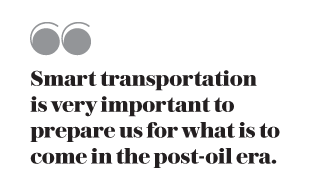
Using innovation in the Gulf’s transport sector will prove crucial in facing challenges to cater to the population’s growing needs. “Smart transportation is a very important part of the region’s growth and development and for us to prepare for what is to come in the post-oil era,” said Ahmed Al-Khoury, director general of the UAE Federal Transport Authority. “We are looking to put our strategies in a holistic manner in the UAE and smart transportation will transform the country into a logistics hub, especially when linked with the railway once it is finalized.”
He spoke of the Emirates setting up a federal transportation law for new services, including smart transportation such as autonomous vehicles, to ensure safety and security. “The aim is to achieve sustainable development, and railway networks as well as the tram and all elements related to transportation will be a part of it,” he said.
“Public transport in the UAE is on the rise, and this will help lead to less violations and accidents. Autonomous vehicles are a reality right now, and it is very important we prepare for it. But yet, there are still many developing economies that are not able to face different challenges that all this entails, so the private sector will play a pivotal role in that regard to generate creativity and innovation.”



